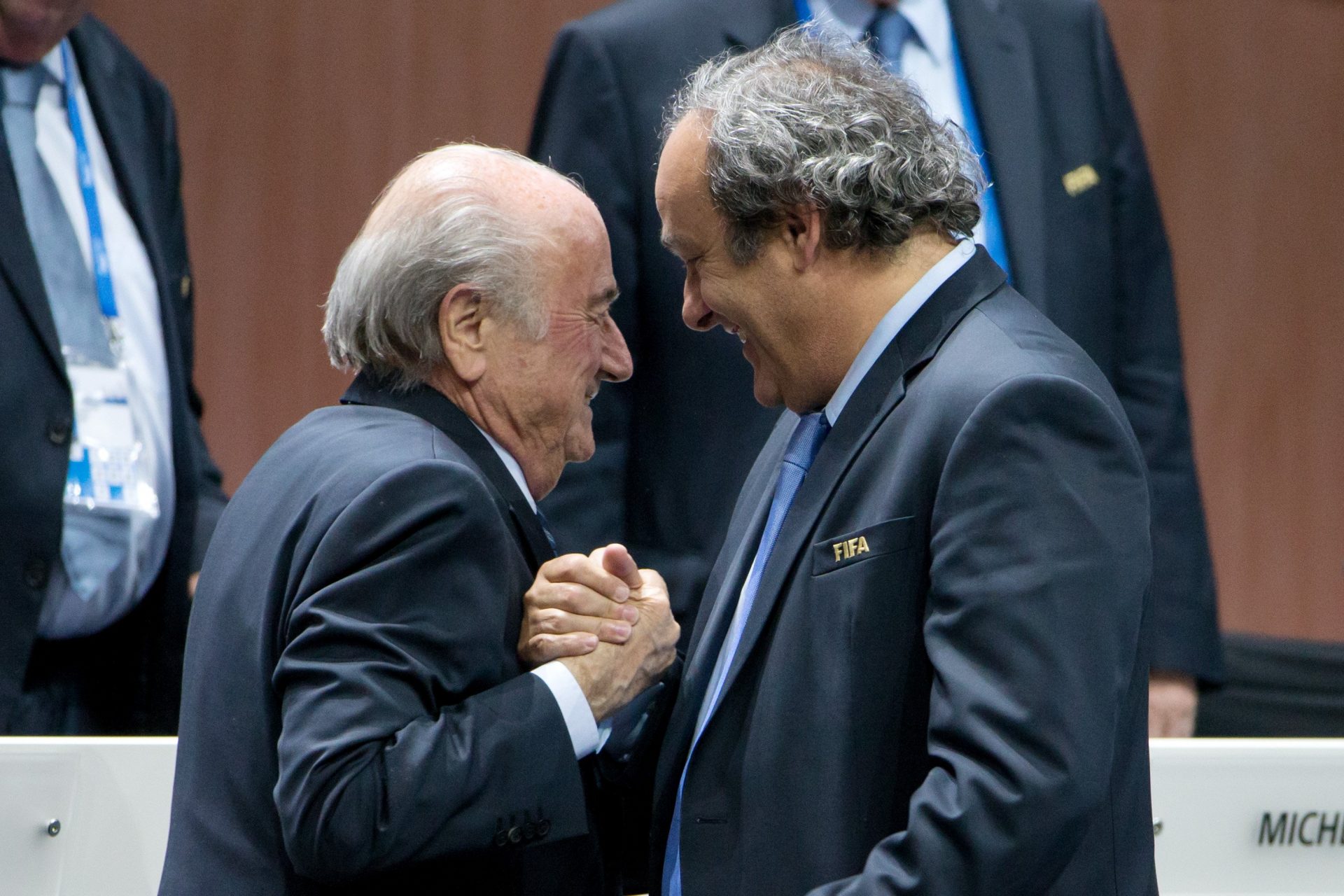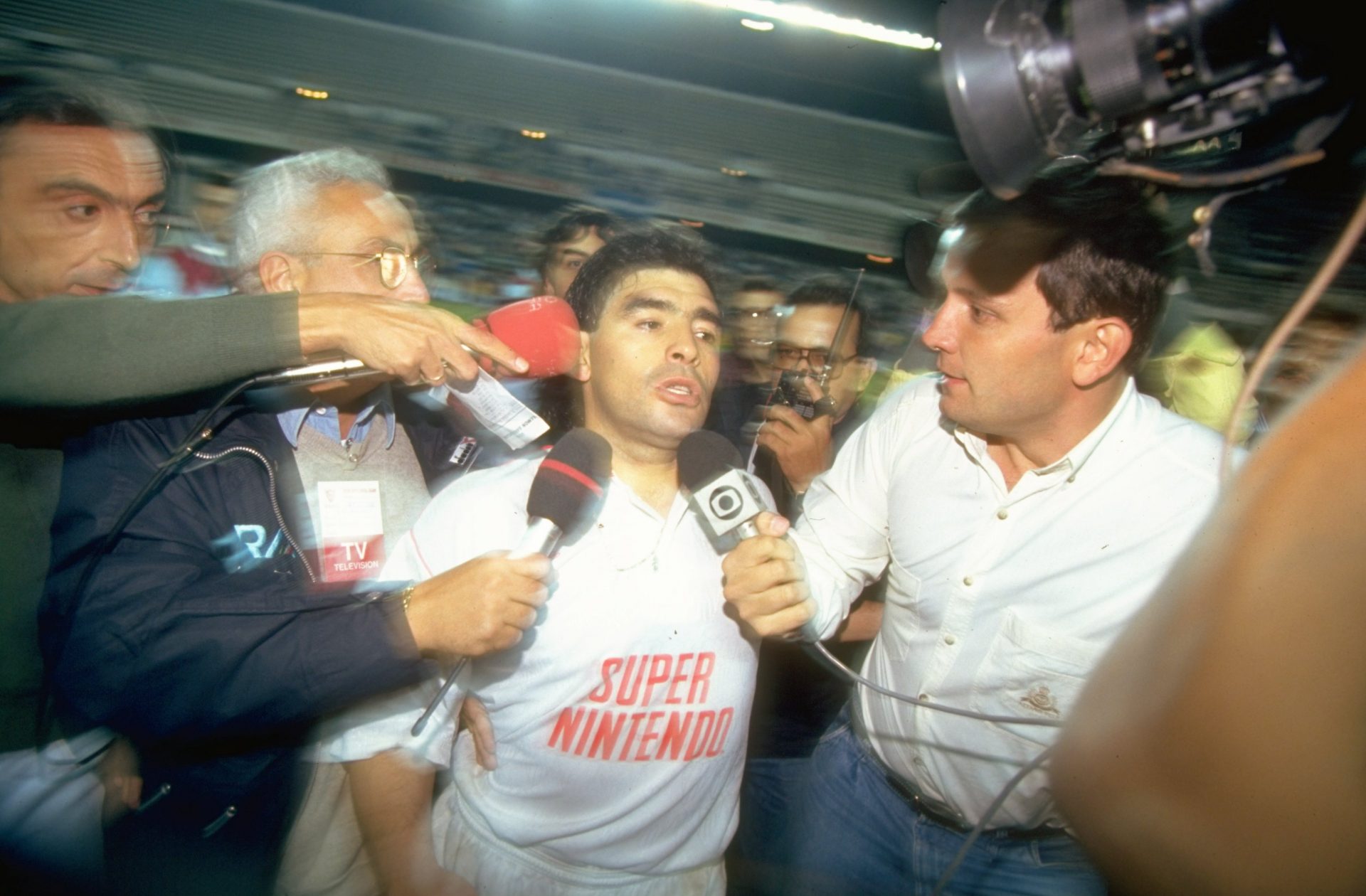The final countdown has begun to the November-December 2022 World Cup in Qatar. It is the most corrupted sporting event ever and, given FIFA’s tainted history and the cash-for-ballots imbroglio of the Olympic Games voting process, that is infamy indeed.
FIFA chooses to sidestep claims that more than 6,500 imported labourers have died in Qatar in the past 11 years. But, right on cue, the Swiss attorney general has now decided that former FIFA president Sepp Blatter and former UEFA president Michel Platini must stand trial on charges of “fraud, misappropriation, criminal mismanagement and forgery”.
The case revolves around two million Swiss francs (around £1.6million) paid as a “consultancy” bonus to Platini by Blatter, the FIFA president in 2011. If convicted, Blatter, 85, and Platini, 66, could be jailed, or more likely fined some of the wealth they drained from the swamp around FIFA House in Zurich.
The two plead not guilty. Their misfortune is to have to stand trial in their lifetime. Others, notably the original Godfather of FIFA corruption, João Havelange, managed to dodge culpability by citing ill health before, finally, dying at the age of 100 in Brazil. Similarly, Chuck Blazer, the New Yorker who was in charge of FIFA television and marketing, knew he had terminal cancer when he was arrested for failing to pay US taxes on the millions he helped himself to from the corruption bandwagon.
Colourful, jocular Chuck, everyone’s friend, turned FBI informant in the American plea-bargaining compliance, similar to that which entrapped the gangster Al Capone in 1931.
Blazer secretly recorded fellow FIFA committee members attending the London Olympics in 2012, using a microphone hidden inside a key fob. That led some of them to the ongoing American court cases. Blazer confessed to tax dodging but succumbed to his illness before he could be sentenced.
So Havelange, who presided over FIFA from 1974 to 1998, and Blazer the whistleblower, both went to heaven or elsewhere without facing trial. So did Julio Grondona, the Argentinian who chaired FIFA’s finance committee for decades and died before his trial in New York.
Some, for example the notorious Jack Warner, use political and legal leverage to avert (so far) extradition from Trinidad and Tobago to the US on charges of corruption. But few of the 22 FIFA executive committee who, in December 2010, voted for Russia 2018 and at the same session for Qatar 2022, remain untainted by vote rigging accusations.
Ricardo Teixeira, former son-in-law of Havelange and head of the Brazilian football federation, is banned from football administration sine die. Mohammed bin Hamman, the one-time president of the Asian confederation was barred for life after attempting to stand against Blatter for the FIFA presidency. Hamman was the paymaster offering bribes for votes in the run-up to Qatar’s bid.
So much for the dark history of how the hosting rights were bought. Some 200 countries or states are still trying to qualify for the privilege of playing in the finals that begin in the Gulf next November 21 and end just before Christmas.
David Beckham was recently reported to have accepted millions he probably does not need to be an “ambassador” for Qatar. Neymar, whose country Brazil has just qualified, is already the poster boy adorning street banners in Doha and other Qatari cities that will host the “Beautiful Game”.
Denmark, who won the first nine of their World Cup qualifiers before losing to playoff-bound Scotland, face the small problem of being a part of the Scandinavian campaign calling for a boycott on human rights concerns. But Gianni Infantino, who inherited first Platini’s seat as head of UEFA and then Blatter’s presidency at FIFA, insists that Qatar is a work in progress in terms of conditions for workers and human rights.
“Of course,” he has said, “human rights is a top priority for FIFA. We need to be fair and admit a lot of progress has happened. Of course, more can be done… everywhere, always, even in Switzerland.”
Infantino, like Blatter, is a Swiss national. He has ambitions to double the World Cup workload (and profitability) by pushing for a World Cup every two years rather than four. He waters down the quality by increasing the entry-level. Next year 32 nations will attend the finals and after that, if Infantino gets his way, there will be 48 finalists.
He is filling the void left by the enforced departures of the men heading for trial in Switzerland. Blatter, who learned all he knew about leadership from Havelange, says he will be free once all the facts are worked through “cleanly” in court. Platini, who, unlike Havelange, Blatter, Infantino, Blazer, Warner and the rest, played the game – and played it beautifully – says through his Swiss lawyer that his innocence will be established once the evidence is heard.
But the charge sheet was long in the making and damning in words. “Fraud, misappropriation, criminal mismanagement and forgery of a document.” The trial, yet to be scheduled, will run concurrent to those in New York. All flow from the FBI descending, at dawn, on a luxury Swiss hotel to arrest committee men who thought “the game” protected them from common law.
One day, perhaps after Qatar, we may dream of a game for the game’s sake




